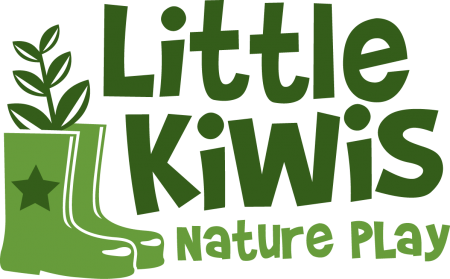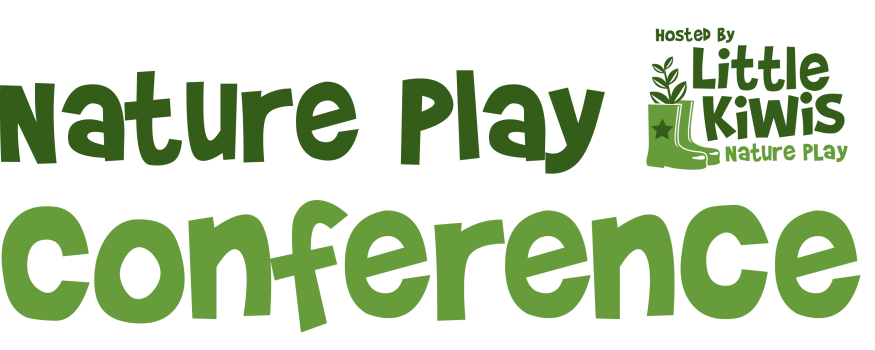
Speakers and Workshops
Monday 28th March
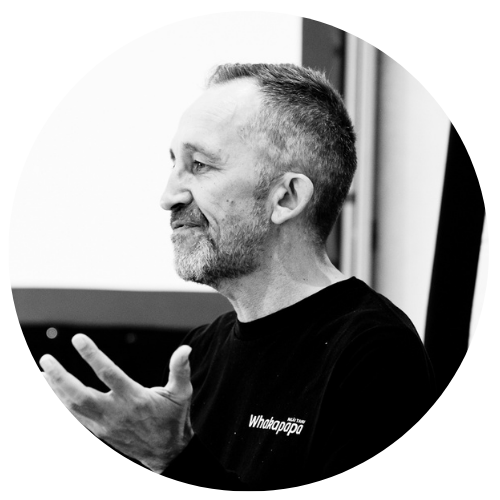
Joseph Hullen: Kaitohutohu Rēhita Whakapapa, Ngai Tahu
Ngāi Tūāhuriri, Ngāti Hinematua.
Joseph lives at Kaiapoi where he is a Ngāi Tūāhuriri appointment to the Canterbury Aoraki
Conservation Board, the current chairperson of the Te Kōhaka o Tuhaitara Trust which
administers the Tuhaitara Coastal Park between the Waimakariri and Rakahuri/Ashley Rivers.
He is also a Trustee with Matapopore, the mana-whenua ‘voice’ responsible for ensuring Ngāi
Tūāhuriri and Ngāi Tahu values and aspirations are realized and embedded within the post-
earthquake re-build of Christchurch.
OPENING KEYNOTE: The meaning of Taiao (Nature)
Joseph will korero from a te ao Māori perspective, the importance of Taiao and you will find yourself reflecting on how you engage in your local spaces.
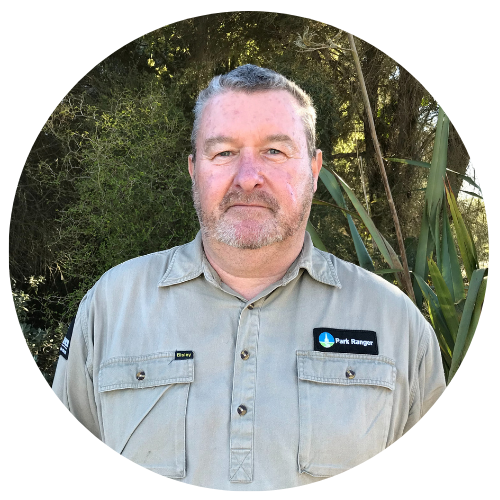
Warren Hunt: Forest Ranger & Lifelong Learner
Warren has been learning, educating, discovering, inspiring and delivering outdoor nature activities for over 30 years. As a Park Ranger with Christchurch City Council he is extremely proud and passionate about his role to deliver fun, hands-on activities for children and adults alike. Whether its formal programme delivery, or informal fun with mud play, negotiating Fairy Village relocations, or wrangling Gruffalo, Warren is keen to be involved. He brings a wealth of knowledge and experience and his sense of humour and enthusiasm is infectious!
KEYNOTE: Connect with your inner child to connect kids with nature.
Sometimes as adults and as educators with lesson plans and targets to meet, it’s easy to forget we were kids once too. By changing your mind-set and keeping your inner child alive you can create learning experiences that last.
Warren will lead you through his playful approach to education, weaving facts with fun and telling stories not lectures, and not taking himself – or others – too seriously. Explore the world with all of its possibilities and experience the simple joy and child-like wonder of learning again.
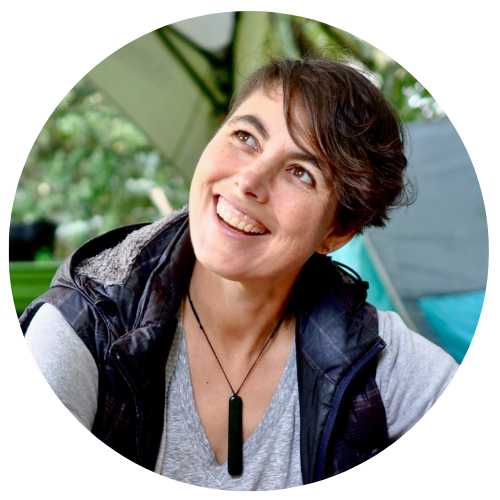
Ann Langis: Director, Ann Langis Play
Ann is a passionate advocate for play, particularly in outdoor, nature-based settings. She has over 25 years’ experience working alongside children from ECE through to college, as well as a master’s degree in Education from Harvard University.
The birth of her own 3 children led to years of involvement in Playcentre where Ann supported hundreds of children and their parents to take the leap into nature, whether just outside the centre door, or on dedicated outdoor sessions. She went on to become the co-founder and Director of Conscious Kids Devonport Ltd, offering nature-based school holiday programmes for ages 5-12, and now delivers professional development and coaching through her consultancy Ann Langis Play Ltd., as well as the loose parts play programme Junky Monkeys.
When she’s not thinking about play, writing about play, or talking about play, she can be found outside playing, generally climbing a tree or having an impromptu boogie in the grass!
Sticks and Stones… Understanding and Managing Play Fighting in Nature-Based Settings
When you allow children to follow their own interests through nature play, you will see fairies mixing potions, Mums and Dads building shelters for the baby, and construction workers relocating sand at the beach. You will also see play fighting, and lots of it. Many of us (mostly female) teachers feel quite challenged by children (mostly boys) engaging in this type of play, and we may find ourselves saying things like “We don’t play like that here because we don’t want any of you to be hurt… because we don’t want you even to pretend to hurt each other… because guns hurt people… because it’s not nice… because I said so.” Why do we say so?
Join us as we take a closer look at the theory and research around play fighting and consider practical strategies for managing this type of play.

Kirsten Simmons: CEO of Nature2classroom/ Director of Talking Tree Hill
Kirsten (Dip ECE, Bed, MEd) is a mother, registered teacher and child advocate for holistic wellbeing and planet kindness. Raised on the family farm in South Canterbury her love for nature, wellbeing, adventure and a lifelong commitment to bettering education began. She has been educating children and adults for 20+ years in Europe, Asia, and Australasia and spent her time researching, reflecting and observing what makes children’s hearts and minds sing.
She has founded Talking Tree Hill an outdoor creative educational facility based on beautiful Waiheke Island, and nature2classroom a creative nature education programme delivered online for schools and homeschoolers.
Kirsten’s vision is for equal access to creative nature education for children nationally and globally.
Creativity and Nature education a must for your curriculum!
In this workshop we will explore how to successfully integrate creative nature education into your ECE centre or Primary School. Giving you tips, tricks and inspiration through proven NZ based research and practices. This workshop will empower you to walk away feeling grounded in the knowledge that you can develop your curriculum to be creative and collaborative and help children foster a deep connection to place and whenua. Helping children to develop authentic voice, thinking and behaviour awarenesses and teaching healthy minds and bodies. Yes! All by integrating more creative nature education into your curriculum.
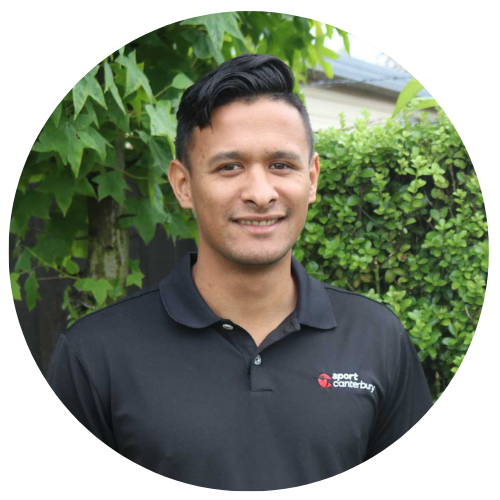
Lawrence Tau: Systems Innovator, Healthy Families Ōtautahi Christchurch
He uri tēnei nō Ngāti Tahu / Ngāti Whaoa.
Systems Innovator in the Healthy Families Ōtautahi team, Lawrence has a strong passion for Ngā Taonga Tākaro (traditional māori games) and has been a part of the Taonga Tākaro movement in Waitaha.
Lawrence also leads a project called Te Pou o Te Whare which aims to increase opportunities for young people who are in state care to engage in physical activity, and to support those providing opportunities to better meet the needs of the young people. The outcome is that young people in care will have a greater chance to enjoy quality experiences in sport and recreation.
Story telling through games
This workshop explores how we can bring māori narratives to life through games that are unique to māori, which can then be on shared with both the children and adults in your communities.
Tuesday 29th March

Julie Frew: Occupational Therapist, Kaiwhakaora Ngangahau
Julie Frew is a registered occupational therapist, bringing 14+ years of specialised experience alongside children and their families, supporting their sense of self, and their meaningful relationships with others and the world around them. She has completed post-graduate study in using sensory processing principles with diverse populations and additional training(s) in the use of psycho-sensory intervention, attachment and trauma-informed care. Julie draws heavily on the restorative power of music and a deep connection to the natural world in her work.
In occupational therapy we see ‘doing’, ‘being’, ‘becoming’ and ‘belonging’ as central to human health and wellbeing; integrating our body, feeling and thinking life, having agency, and developing in the context of relationships. Julie’s holistic work has a sound underpinning in neuroscience, drawing on the Neurosequential model, Polyvagal theory, and linking this with the day to day activity people find meaning in. Julie practises her sensory processing and trauma-responsive work within a Neurodiversity paradigm.
KEYNOTE: All Behaviour is Communication. What’s beneath behaviour and how do we effectively support children?
Understanding there is always a story behind behaviour allows us to meet challenging moments with curiosity and compassion – for ourselves, the caregivers we encounter, and importantly the children in our care.
A deeper understanding of how our nervous systems adapt to keep us safe, in the best way they know how, allows us to see how this influences behaviour and invites us to offer support that recognises the nuance and complexity of why a child does what they do.
What we see on the surface can prompt us to consider how someone processes information from inside their bodies, the world around them, and within relationships. Experiences shape and are shaped by these neurobiological processes, as our ways of relating and being in the world unfold within the context of relationship.
Participants will learn: • how to intentionally bring curiosity and compassion in their approach to behaviour, deepening their capacity for co-regulation and healthy, respectful interactions • how to apply a basic understanding of nervous system function to support different nervous system states • what to pay attention to and a brief overview of some key underlying reasons for complex behaviour • how to consider sensory processing to meet a range of needs.

Tracy Irving, Environmental Educator Christchurch City Council
Tracy is an environmental educator with the Learning Through Action team in the Parks Unit at Christchurch City Council. Immigrating from Canada to New Zealand in 2006, Tracy left a career in zoo keeping to pursue her passion for education. Her teaching qualification, coupled with a degree in Animal Science led her to a variety of roles working with children; and infinite opportunities to get her hands dirty while exploring in Nature.
Tracy has spent more than 10 years in primary schools with a focus on getting children outside of the classroom to deepen their appreciation of their natural spaces, maintaining a holistic approach to learning. Currently with Christchurch City Council, Tracy runs immersive educational programmes for young people from y0 to y13 from schools and learning centres across Canterbury. She creates and further enhances learning around New Zealand’s unique and threatened biodiversity, waste management and sustainability.
What’s Bugging You?
Children are naturally fascinated by the biodiversity around them. So, apart from this fascination and a willingness to be amazed with what’s hiding in plain sight, what else will help you to support investigations into the world of mini-beasts? This workshop will look at basic information around our local critters including heaps of habitats, some identification tools, helpful equipment, where to find our buggy friends, their life cycles, and the important roles bugs play to keep Nature in balance.

Leo Smith: Director, Nature School NZ Trust
Leo is a mother, a teacher and a firefighter, with a background in outdoor instructing and outdoor education and years of experience teaching in Secondary, Early Childhood and Primary levels.
Leo’s passion lies in connecting children with nature and being a part of the empowerment, growth and fulfilment that comes when children lead their own play and learning outside.
In her own time, Leo will usually be found up a cliff, in the bush or on the sea with family.
Playing with ‘dangerous’ tools
Us adults all know how rewarding it can be to play with fire and knives! Some believe that kids shouldn’t use these ‘dangerous’ tools, as they might hurt themselves?! Leo’s workshop will introduce whittling, knife use, teaching knife use and using fire with children. We will also look at risk management for fire and knives, and safe operating procedures (SOP).
You will come out of this practical workshop having had a good play with some ‘dangerous’ tools, rigorous discussion and thought provocation and with your own SOP.

Giarne Harrison, Raranga by Giarne
Kō Ngāti Whātua tōku iwi; Nō Ingarangi, nō Airangi ōku tīpuna. Ko Giarne Harrison tōku ingoa.
Raranga/weaving helps connect people to te ao māori, their creative strengths and to the earth itself. Participants in Giarne’s workshops find themselves immersed in a sensory experience –it is tactile, smells lovely and you can lose yourself in the patterns and rhythm of weaving. Giarne’s teaching is collaborative, gentle and fun. She ensures a good grounding of tikanga is in every workshop as its an integral part of the craft.
For Giarne personally, creativity is a way to help heal. When she has a bad day she thinks “I can art myself out of this slump”. Her hope is that others will find solace in their creative passions as well.
Raranga makes use of a strong, resilient, familiar plant and turns it into decorative and functional items.
Weave flowers with harakeke (raranga putiputi)
Create 2 different styles of putiputi (flowers) from harakeke (flax). Learn how to make a “wind up rose” and an arum lily. This workshop focused on learning some tikanga (cultural practices), te reo (language) and weaving skills. I run classes that are calm, fun and supportive.

Dani Lebo: The Eco School
Ko au te awa, ko te awa ko au. I tipu ake au i raro ki ngā maunga Appalachia, I takaro ahau i te awa Passaic, Ko Atlantic te moana. Kei te noho au i Whanganui inaianei. Ka tiaki te maunga Ruapehu ki a āku tamariki. Ka whangai te wai o te awa tupua o Whanganui ki a rātou. Nō reira ngā mihi nui ki ngā tāngata whenua o aku kainga – te Atihaunui a Pāpārangi.
Dani Lebo lives on a small mixed-use permaculture farm in Whanganui with her husband, three children, and an assortment of animals. They run The ECO School – providing accessible sustainability education through permaculture courses, community workshops, and nature play programs. Dani has been an outdoor educator across a variety of settings and has also been a classroom teacher in the US and NZ. She currently is the forest educator at Whanganui Intermediate School and runs forest school teacher trainings across the country.
She is a fan of bushcraft, games, and storytelling and is working to creatively bring nature play into mainstream schooling in Aotearoa.
CASE STUDY: Wanganui Intermediate Forest School
In this korero, Dani will share how Wanganui Intermediate has started a forest school programme covering the challenges and the successes and a bit of the how to!
Wednesday 30th March

Julie Frew: Occupational Therapist, Kaiwhakaora Ngangahau
Julie Frew is a registered occupational therapist, bringing 14+ years of specialised experience alongside children and their families, supporting their sense of self, and their meaningful relationships with others and the world around them. She has completed post-graduate study in using sensory processing principles with diverse populations and additional training(s) in the use of psycho-sensory intervention, attachment and trauma-informed care. Julie draws heavily on the restorative power of music and a deep connection to the natural world in her work.
In occupational therapy we see ‘doing’, ‘being’, ‘becoming’ and ‘belonging’ as central to human health and wellbeing; integrating our body, feeling and thinking life, having agency, and developing in the context of relationships. Julie’s holistic work has a sound underpinning in neuroscience, drawing on the Neurosequential model, Polyvagal theory, and linking this with the day to day activity people find meaning in. Julie practises her sensory processing and trauma-responsive work within a Neurodiversity paradigm.
All Behaviour is Communication – A deeper dive
This workshop takes a dive into the neurobiology of sensory processing and the interface this has with our social-emotional development. We will discuss how developmental trauma and neurodivergence (or a combination) might impact on behaviour, engagement and participation.
Participants will learn:
• The importance of self-compassion when it comes to supporting complex behaviour, and how to practise this in-the-moment
• To practise discerning the ‘why’ behind behaviour and what a child might be communicating
• How to pro-actively assess and balance factors that contribute to optimal arousal for learning/development/play
• More about sensory processing in the outdoor classroom, and how to move from one-size-fits-all to adapting for individual needs.

Celia Hogan, Nature Education Specialist + Founder and Lead Educator at Little Kiwis Nature Play
As a facilitator of outdoor and nature-based learning, Celia inspires ECE and primary teachers to look beyond the day-to-day challenges and find outdoor learning opportunities where kids can blossom. She is passionate about connecting children to nature and is a strong advocate for nature play, risky play, building resilience, and improving mental health and well-being through nature.
For the past 20 years she has worked for a variety of outdoor education organisations internationally, setting up, developing and running outdoor programmes, wilderness expeditions, leadership development programmes and establishing risk management and safety systems. Celia manages to juggle professional development training, speaking engagements, running her Bush Kindy sessions for pre-schoolers and their whanau and taking her own kids on mini adventures in nature.
Setting up and Teaching in the Outdoor Classroom
This is a practical workshop ideal for nature educators who are looking at how they can bring nature into their own outdoor environments and use it as a teaching space. We will take a walk through our Bush Kindy environment where we will consider how children play having discussions on schema, loose parts play, nature play and risky play. These discussions will help us identify what to think about when developing your outdoor space. We will finish up thinking about teaching in that space and with some tools for your kete.
Together we will experience some nature based activities within the space to build up confidence on how to use the outside space with your teaching. There will be time to share ideas, ask questions to extend your learning and expand your toolkit of ideas.
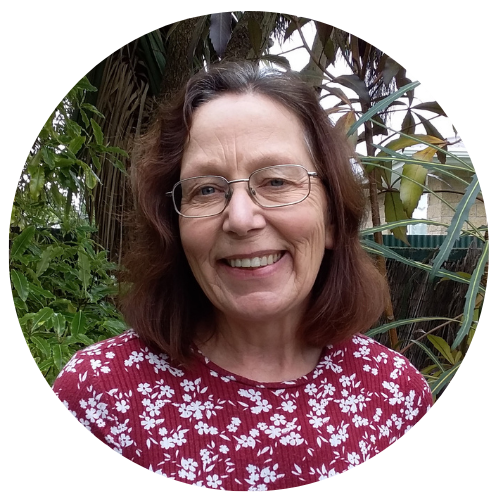
Tanya Jenkins – Avon-Heathcote Estuary Ihutai Trust Manager
Tanya is a founder member of the Estuary Trust which became a charitable Trust in 2012. This group was formed to ‘represent” the estuary ecology. To be the voice of the water and all that lives in and on it.
Since 2012 the Trust has organised numerous event and campaigns to raise the awareness of the values of the estuary and promotes ways to protect it and where possible enhance it. This includes the restoration of 5 wetland areas adjacent to the estuary where volunteers meet regularly to plant, weed, prune and water to create more nature space for insect, reptiles and birds.
One of the key events is the annual “Mother of all Clean Ups” where thousands of volunteers collect litter from the estuary edge as well as the banks of the Avon and the Heathcote rivers. Schools, sports and recreation groups as well as residents association, Lions, Rotary group etc can register to ‘adopt’ a stretch of nearly water way for which they are responsible to keep litter free. The presentation will focus on the success of this event and invites participation for future years.
A Litter Free Christchurch (and beyond) Through Community Participation
This presentation will cover the effects of litter on our natural environment, what kind of litter we find entering our waterways and how it enters our waterways.
While the presentation is about how we can get together through actions to make Christchurch a litter free city, we will step back and consider how can centres, schools and other communities apply this to their own setting.
The audience will become inspired and stimulated to investigate what we can do as individuals and groups to make this vision a reality.

olin Meurk: Landscape Ecologist – Fellow at Canterbury & Lincoln Universities & Manaaki Whenua Research Associate
Dr Meurk has adjunct positions at Canterbury and Lincoln Universities and is a Manaaki Whenua – Landcare Research Associate. His interests include biogeography, ecological restoration and design, landscape function, urban ecology, subantarctic islands, conservation biology, citizen science, people-nature connectivity and ‘futures’ solutions.
His contribution to landscape ecological modelling and optimised habitat patch networks has informed cultural landscape planning and design. He promotes and participates in community restoration projects, integrating biodiversity through cities and countryside.
Colin is on numerous councils, trusts, advisory and steering groups advocating for eco-sanctuaries, resilient/biophilic/national park cities, urban great walks, joined-up ecological thinking and eco-literacy. He has received a Christchurch Civic Award, Loder Cup, Ecology in Action Award, a Golden Foot Award for the Christchurch 360 Trail, supreme award for Horticultural Excellence at the 2012 Ellerslie International Flower Show, and most recently an ONZM. He currently supervises post-graduate students and runs a forum on “creative transitions to sustainable futures.
The many Dimensions of Nature revealed through a Walk in the Park – Transcending Age and Culture
Unstructured youthful curiosity can form a parallel universe to disciplined science, but they can both learn from each other at points of convergent exploration. Colin will tell his own stories of plants, microbes, creatures, patterns and zonation at local to global scale, growth forms, adaptation, evolution, Matauranga Maori, cultural connection, sense of place, life cycle, food webs, succession and deep time. So, where will the children take us as they explore their inclinations and build their story? Who knows what they will discover? Out of this interaction and symbiosis can come decolonised ecological literacy. We have to try – hard, so the future citizens of mother earth know where, why, and how we need to travel.
Thursday 31st March

Julie Wylie: Julie Wylie Musical Play
Julie Wylie MNZM founded the New Zealand Musical Parenting Association twenty six years ago. She is the founder of the musical play programme at the Champion Centre, Burwood Hospital, Christchurch, New Zealand, where she is the senior music specialist. Julie has been invited to present music workshops and papers in many countries, including Korea, Japan, Singapore, Australia, the United Kingdom, Lithuania, Estonia and Finland.
She has received awards for her music leadership, and her music resources have won international awards. Julie was made a member of the New Zealand Order of Merit in the 2018 Queen’s Birthday Honours.
She has her own music school for mothers and babies and children aged 0-8 years, and is Co-Director of a Postgraduate online training programme in Play Therapy and Musical Play. Julie is currently involved in a research project at the Champion Centre, with mothers and their prematurely born infants.
Singing and Saying, Moving and Playing, Exploring Each Moment Through Musical Play
Musical play and exploring nature go hand in hand. Children are able to tune into the sights and sounds of nature, with a sense of joy and wonder. Connection to the natural environment through sensory musical play, fosters children’s creativity and wellbeing, enabling them to experience the healing power of nature.

Ann Langis: Director, Ann Langis Play
Ann is a passionate advocate for play, particularly in outdoor, nature-based settings. She has over 25 years’ experience working alongside children from ECE through to college, as well as a master’s degree in Education from Harvard University.
The birth of her own 3 children led to years of involvement in Playcentre where Ann supported hundreds of children and their parents to take the leap into nature, whether just outside the centre door, or on dedicated outdoor sessions. She went on to become the co-founder and Director of Conscious Kids Devonport Ltd, offering nature-based school holiday programmes for ages 5-12, and now delivers professional development and coaching through her consultancy Ann Langis Play Ltd., as well as the loose parts play programme Junky Monkeys.
When she’s not thinking about play, writing about play, or talking about play, she can be found outside playing, generally climbing a tree or having an impromptu boogie in the grass!
Nature Play for Babies and Toddlers (up to 2 yrs old)
Babies and toddlers in nature? Yes indeed! Your littlest tamariki need nature play just as much as our 3-4 year olds, but perhaps for different reasons. In this session we’ll consider the developmental needs of infants and toddlers, and the risks and benefits of nature play for them. For this session be prepared to get outdoors and view the natural environment from a baby’s eye view… but we’ll also share ideas for bringing nature play indoors when it’s not suitable or practical to be outside.

Sarah Goldberg: Mindful Nature Connection Guide
Sarah is originally from the US where she raised a family and worked in office environments until she felt the call to return to nature. The call was so strong she left her career, put everything in storage and followed her heart to New Zealand. At the age of 40 she learned how to tent camp and solo tramp, practice wellbeing through meditation, yoga, and mindful nature connection. She completed several mindfulness trainings and also became a certified ‘Nature Therapy Guide’ through the Association of Nature and Forest Therapy, based out of California.
Sarah draws from study in environmental science, biology, developmental psychology, contemplative & Earth wisdom. Through study and experience, she seeks insight and understanding on living in reciprocity and care with nature, self and community. Sarah is currently completing a graduate diploma in Sustainability & Outdoor Education at Ara. She is particularly interested in how transformational psychology, mindfulness and nature connection may support both human and environmental wellbeing as the impacts of our changing climate unfold. Sarah is active in conservation and believes that when we are caring for nature, we are caring for ourselves and when we are caring for ourselves, we are caring for nature.
Mindful Nature Connection
Drawing from practices of shinrin yoku forest bathing and mindfulness, this workshop will invite us into the present moment through our sensory connection with nature. Invitations for this session are designed to explore our own experience of reciprocity with nature while also bringing us together in community as we share with each other. This is a slow, gentle practice of being present on purpose, embodiment, sensory awareness and nature connection. During this workshop we will also practice mindful communication by listening and sharing with presence and an open heart.
From this workshop, you may gain inspiration and ideas on how to practice mindful nature connection in your own life for wellbeing, and also how to weave it into activities for the work you do with children and youth. These practices can increase our sense of wonder and curiosity about nature, ourselves and our community. Participants may also gain insight and a deeper understanding of how to care for the Earth in a kinder, more heartfelt way.
*Research suggests this practice may reduce stress, anxiety, and depression while increasing attention/focus, levels of empathy, stabilised moods, ability to remain calm/resilience during challenging times, and also increase our immune response.

Dani Lebo: The Eco School
Ko au te awa, ko te awa ko au. I tipu ake au i raro ki ngā maunga Appalachia, I takaro ahau i te awa Passaic, Ko Atlantic te moana. Kei te noho au i Whanganui inaianei. Ka tiaki te maunga Ruapehu ki a āku tamariki. Ka whangai te wai o te awa tupua o Whanganui ki a rātou. Nō reira ngā mihi nui ki ngā tāngata whenua o aku kainga – te Atihaunui a Pāpārangi.
Dani Lebo lives on a small mixed-use permaculture farm in Whanganui with her husband, three children, and an assortment of animals. They run The ECO School – providing accessible sustainability education through permaculture courses, community workshops, and nature play programs. Dani has been an outdoor educator across a variety of settings and has also been a classroom teacher in the US and NZ. She currently is the forest educator at Whanganui Intermediate School and runs forest school teacher trainings across the country.
She is a fan of bushcraft, games, and storytelling and is working to creatively bring nature play into mainstream schooling in Aotearoa.
Nature Educator Upskill – Knows, Shelters, & Story Telling
This workshop will help you gain confidence in three key areas that are important for any nature play program – storytelling, knot, and shelters. Great for experienced nature educators who feel the need to add a few tricks to their kete, or for new educators at the beginning of their journey.
We will explore using storytelling as part of a daily routine, and some tips and tricks to make educators feel confident as an oral story teller. We will look at how rituals and routines in a morning and afternoon circle time can enhance your program. You will see several methods of storytelling to use with ages preschool-secondary and have the chance to tell a story of your own.
We will also dive into practical skills of shelter-building and knot-tying. We will look at why these foundational skills are important for nature educators, and how they might fit into your program. And of course, I do love a good game or two, so be prepared to play around a bit too.


Beth Russell – whaea Beth
Kaiako at He Manu Hou
Ko Beth Russell toku ingoa
He Kaiako ki He Manu Hou me kaiako mō mātou Akorangi-tu-a-nuku; Waewae kai kapua.
Nicki Crabbe – whaea Nicki
Kaiako at He Manu Hou
Nicki’s connections to nature led to her interest in developing an outdoor program that strengthened connections to papatuanuku and the concept of kaitiakitanga. She also knew from her experience as an ECE teacher in rural areas that open spaces support resilience, social and emotional growth of tamariki.
Tamariki should have the opportunity to be wild and free. The walls of conformity will bind them for much of their lives so give them the freedom and space to find out about themselves, their relation to the environment and to each other while opportunities are limitless.
Why is Nicki a Kaiako at He Manu Hou? Her grandmother was involved in Te Aitarakihi when she was a child and she has fond memories of her experiences attending kapa haka with her. As a teacher she also recognised her involvement was an avenue for her to develop a greater understanding of te o Maori, Te triti o Waitangi, kaupapa and tikanga as well as Te reo. We are obligated to grow biculturally as Kaiako wherever we teach so she saw this space as an opportunity not to be missed.
CASE STUDY: Kuapapa Māori Nature Programme
Beginning with a kōrero about Waewae kai kapua and the haerenga the center has been on, Beth and Nicki will share the highs and lows, how they started and discuss what worked well and what didn’t. It’s continual process of improvement, including reviewing how much the tamariki are benefiting from the akorangi-tu-a-nuku (outside programme). They will also share how they incorporate māori tikianga/their pepeha/reo/ngā atua into their programme, and highlight how important it is to have support from the whole team, as well as a clear vision to the benefits of running an outside programme – and how the tamariki are becoming kaitiaki o te ao me ngā moana.
